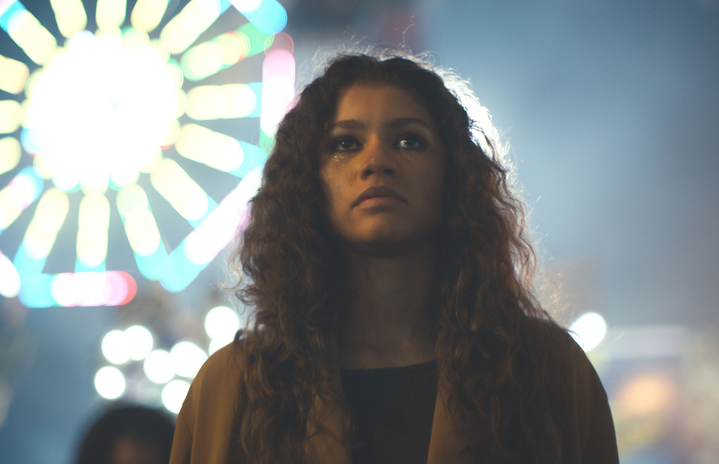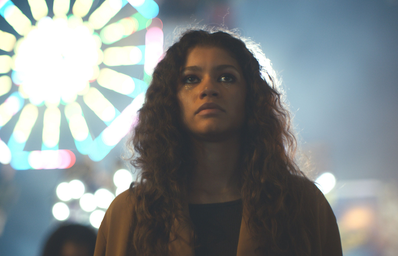“Euphoria” is the HBO Max original series that has captured the minds and hearts of millions of teenagers and young adults around the globe. If you’ve seen it, you are obsessed with it, and if you aren’t, you haven’t seen it.
Starring Zendaya, Euphoria portrays the life of protagonist Rue, a 17-year-old girl who spent the summer in rehab after overdosing. The series begins as Rue goes to a house party just before the start of the school year, where she meets the new girl in town, Jules, who she instantly develops a crush for. The next day, Rue returns to high school where she finds Jules, as well as her old friends, each navigating their own teenage drama.
Aside from the glitter and neon lights, what connects us most to this series is its open, non-judgmental portrayal of the issues facing Gen Z teens and millennials such as navigating sexuality and exploring gender identity.
Euphoria doesn’t fail to bring attention to the changing definition of femininity. The female characters of Euphoria all strive to create their own unique image of it. This entails recognizing society’s pre-existing construct of what is considered feminine.
In the show, Jules, the new girl on the block, played by Hunter Schafer, is the most personal and unbounded interpretation of femininity that one could imagine.
“If I can conquer men, then I can conquer femininity,” said Jules in season one.
Jules conquers femininity. She is an artist whose own personality and style become a part of her art. She takes elements of femininity and masculinity and uses them to complement her true self, while seeming to care little about what traditional constructs of gender may envision. The biggest struggle she faces, however, is that men still play a huge role in defining women in our society. Regardless, she embraces even those more traditional elements of femininity, such as makeup, glitter, pastel colors and dresses, but turns them into something that goes far beyond the image of traditional femininity.
Of course, “conquering femininity” is a difficult task for both Jules and the other women in the show. Two of Rue’s high school peers, Maddy, played by Alexa Demie, and Kat, played by Barbie Ferreira, also explore femininity as a form of empowerment, especially in relation to toxic masculinity.
For Kat, femininity represents the empowerment that she develops from accepting her body as it is, pushing beauty past the mainstream body standards and conquering male attention with her confidence.
On the other hand, Maddy embraces the traditional socially constructed image of femininity, convincing them she is playing by their rules, so that they fulfill her (often material) desires. This challenges the idea that adherence weakens women, since Maddy uses it to overpower men. So, the women in “Euphoria” begin to normalize the idea that femininity is what women make of it.
However, “Euphoria” still places attention on the existence of social expectations of femininity which continue to oppress women, especially given the undeniable human desire to be accepted by others. Conventional femininity exists and is quite clearly defined in the list of attributes that Nate, Maddy’s boyfriend, sees as attractive and as indicative of what a “proper girl” should be.
“He (Nate) made a long mental checklist of the things he liked and disliked about women. He liked tennis skirts and jean cut-offs, but not the kind so short you could see the pockets. He liked ballet flats and heels. He hated sneakers and dress shoes,” as Rue narrates in the second episode of the first season.
These established conventions take a toll on women’s perception of themselves, and it is Cassie, played by Sydney Sweeney, who most effectively depicts just how oppressive they can become and how difficult it is to break free of them.
Cassie looks for love and validation by pleasing the male gaze. So, her portrayal of femininity in the show is probably the most contested version. Nonetheless, it represents the tough reality that a woman wakes up every day to confront a world where there is a pre-established idea of what she should be, defined by a man.
Euphoria’s female characters strive to break free of these norms, conquering them to fulfil their personal identity. Even more, they give a leading example for all young women that they can make femininity what they want it to be.


